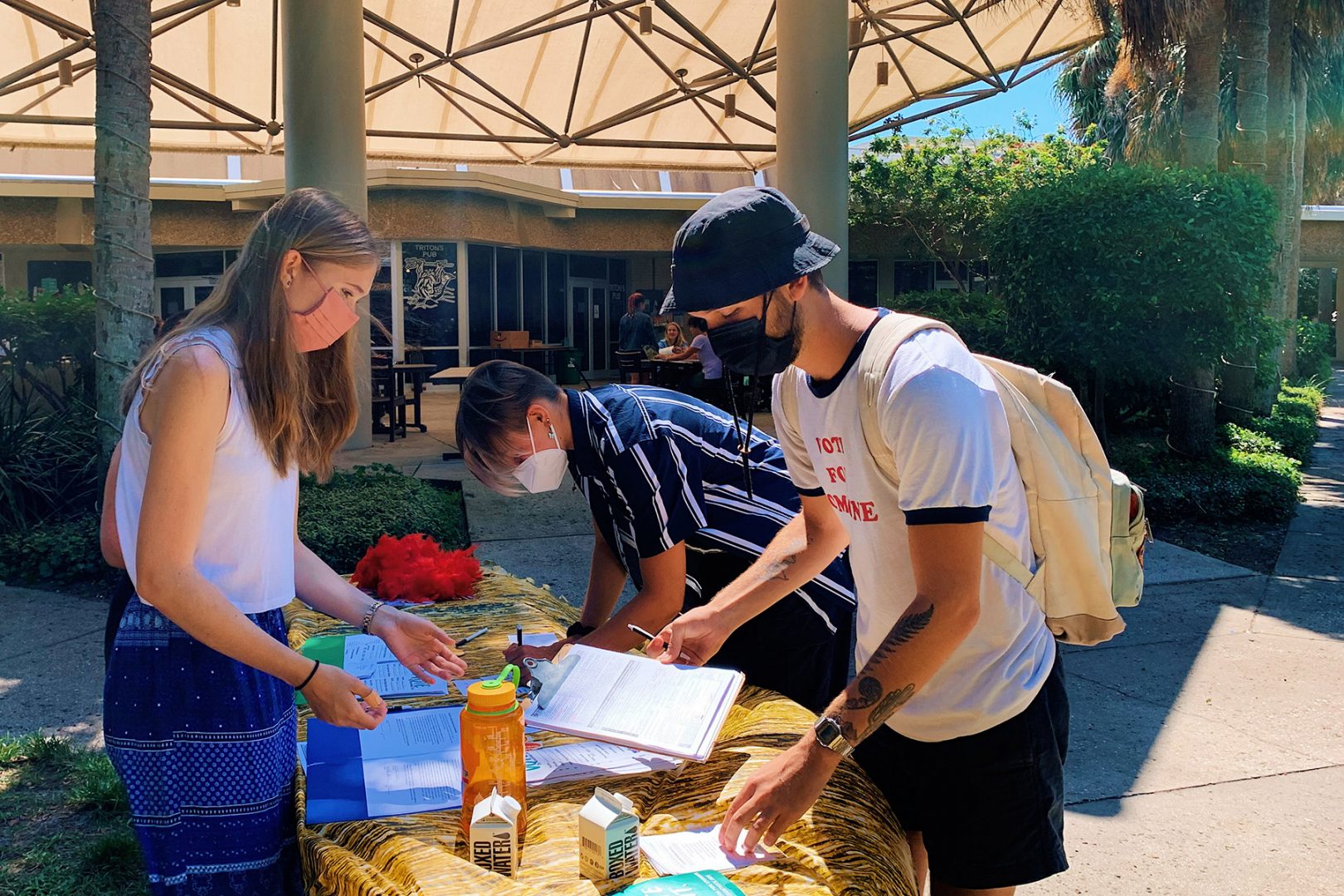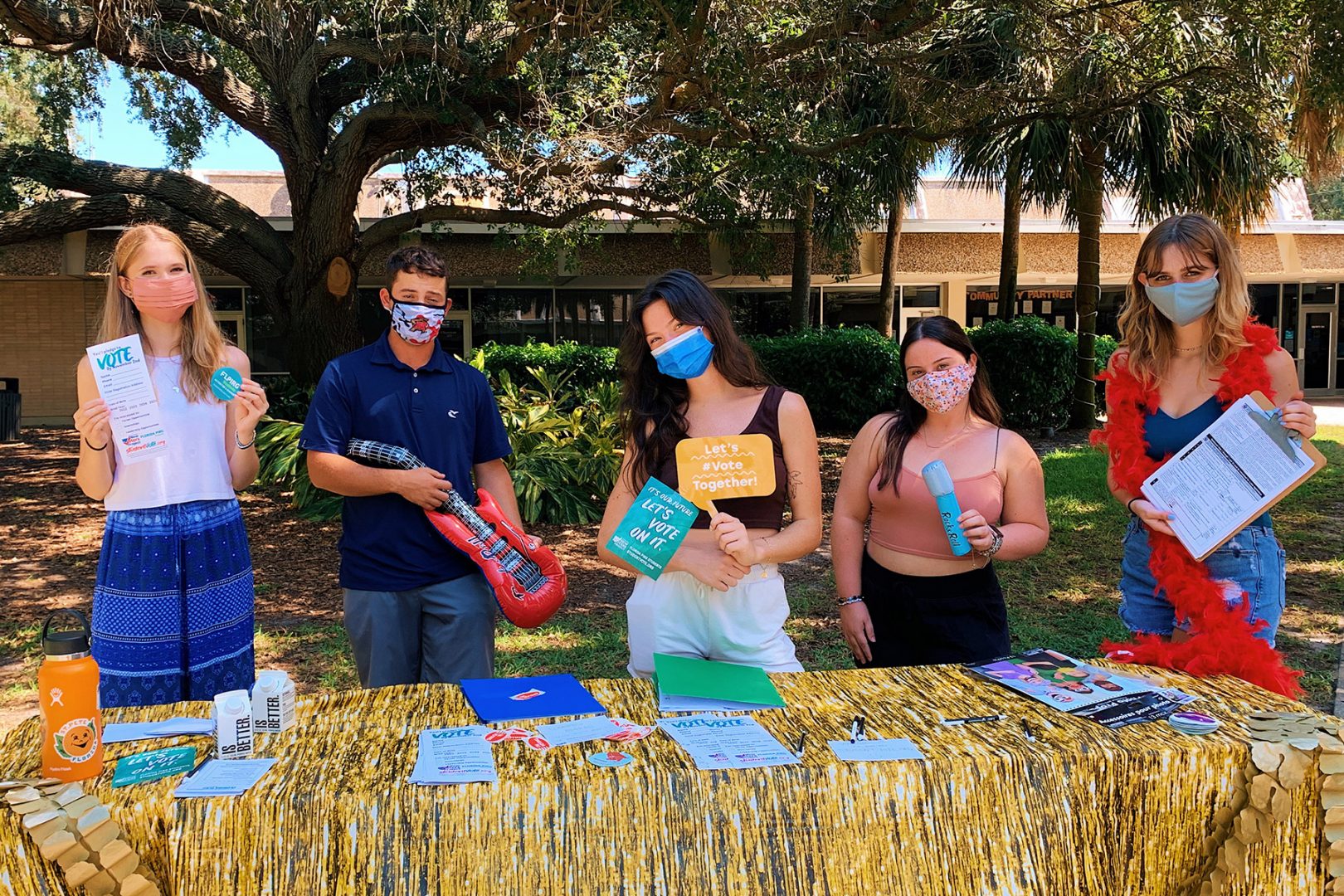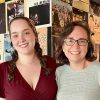
This year, PIRG registered 25% of Eckerd’s largest-ever first-year class, or about 176 students. Photo: Jane Downer ’22
When it comes to casting a ballot, young people are reliably unreliable.
Voter turnout in the 2020 U.S. presidential election was lowest among people in the 18 to 24 age group, according to the Census Bureau, continuing a trend that has endured for decades. Last year, half the people under age 24 who were eligible to vote, didn’t.
But there is a growing army of people trying to change that. And among those leading the way are members of Eckerd College’s Florida Public Interest Research Groups (PIRG) Students chapter. They’ve already had an impact.
In 2019, 120 Eckerd students voted on Election Day at the precinct that serves the campus. In 2020, that number jumped to 1,289 students. This year, PIRG registered 25% of Eckerd’s largest-ever first-year class, or about 176 students. And of PIRG’s 25 volunteers, 18 are new recruits and most are first-year students.

Student PIRGs are part of a federation of state Public Interest Research Groups—a national nonpartisan nonprofit that focuses on, among other things, voter turnout. Photo: Jane Downer ’22
Up next: St. Petersburg’s municipal elections. A “vote party” is set to kick off Tuesday morning, Nov. 2, near the mailboxes outside Edmundson Hall. Students from PIRG will set up tables and chairs, offer up snacks and music, and dig into the real work of getting students out to the polls.
Members will answer questions, hand out voter registration information and offer rides to the polls. It’s important to note that to vote in the Nov. 2 election, you must be registered by Oct. 4. Otherwise, you must wait until the next election to vote.
“We’ll be there until the polls close,” says Carrie Walker, a senior from Loveland, Colorado, who is chair of the Chapter of Florida PIRG Students at Eckerd College. Student PIRGs are part of a federation of state Public Interest Research Groups—a national nonpartisan nonprofit that focuses on, among other things, voter turnout.
“People generally overlook local elections, and that is a huge mistake,” Carrie says. “I can’t speak on issues, but local elections are so important because they actually impact our daily lives.”
A member of Phi Beta Kappa and a Ford Apprentice Scholar, Carrie is studying international relations and global affairs, Spanish, and Latin American studies. She’s also the president of Engage EC, a student-alumni networking club; she works as an office assistant in the Eckerd Advancement Office; she’s writing her senior thesis; and she runs a small business—selling on Instagram clothes that she crochets. “I plan my day very specifically,” she says.
And it helps that she and her PIRG colleagues have had the support of the College. Eckerd launched a website last year (vote.eckerd.edu) for student voter registration information, and it allowed PIRG students access to classrooms. “When the fall term began, we got into 77 classes and spoke to about 1,000 students,” Carrie says. “That’s half the student body.
“It’s sometimes difficult to get people to deviate from their lives to do unpaid volunteer work,” she adds, “but we don’t have that problem at Eckerd. Back in September we handed out interest cards, and we got 488 of them back saying that person was interested in what we do. That’s almost a quarter of the students at Eckerd.”
Morgan Colton, a senior political science student from Dayton, Ohio, has been with PIRG about 18 months and is the group’s New Voters Project co-coordinator. She also is PIRG’s recruitment drive coordinator. “I believe our democracy works only if there is full participation.” Morgan says. “Everybody should use their voice, which is their vote.”
Morgan’s father is a firefighter, and her mother a 911 dispatcher. “They were very surprised when I picked up voting work,” Morgan says. “But they got on board and support me. They understand the long hours really do make a difference.”












